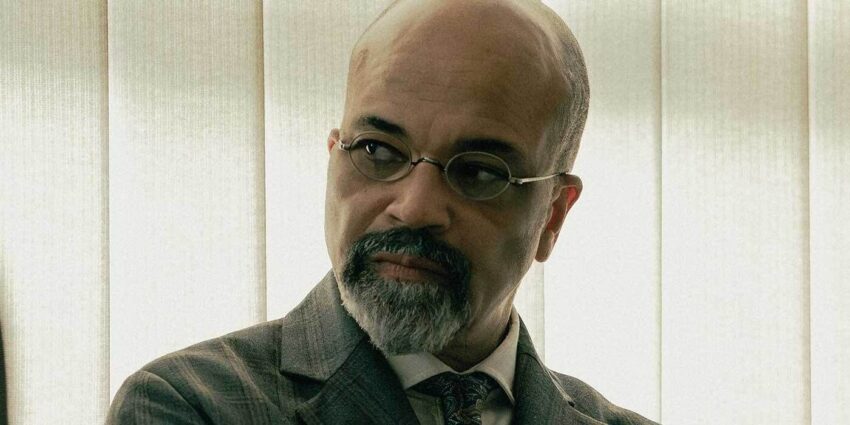In the last few years, the spy-drama genre has exploded in popularity thanks to hits like The Americans, Homeland, and Slow Horses. Audiences have come to expect a certain rhythm of high-octane action balanced with intimate character work, and most new shows are judged against that template. So when The Agency arrived on Paramount+, expectations were already sky-high. Adapted from the acclaimed French espionage thriller Le Bureau des Légendes, the series debuted at a modest 67% on Rotten Tomatoes, a score that suggests something forgettable rather than the tightly wound, character-driven thriller it actually is. But don’t let that number fool you. Beneath the lukewarm reviews is a smart, slow-burn espionage thriller that prioritizes the human cost of CIA undercover work over the flashier, action-heavy and frankly unrealistic beats that dominate the genre. Its cast, writers, and directors, along with executive producer George Clooney, translate the DNA of the French original into a distinctly American story anchored by a stellar ensemble led by Michael Fassbender. And for viewers craving a grounded alternative to the high-gloss spy shows currently ruling TV, The Agency is far better and more compelling than its score implies. What Is Paramount+’s ‘The Agency’ About? Based on the acclaimed French series aka The Bureau, The Agency follows CIA operative “Martian” (Fassbender), who has spent years embedded in Ethiopia under deep cover long enough to blur the professional lines he was supposed to uphold. His assignment ends abruptly, forcing him to cut ties with his lover, university professor Sami Zahir (Jodie Turner-Smith), and return to London Station before either of them can process what their relationship really was. Back in England, Martian attempts to settle into the routine rhythms of CIA desk life, but the transition is anything but smooth. He struggles to rebuild his identity outside of deep cover, especially when it comes to reconnecting with his teenage daughter, while navigating a department where trust in him is questionable. Director Henry (Jeffrey Wright) and Chief Bosko (Richard Gere) oversee London Station with sharply different philosophies, and both men quietly question Martian’s reliability even as they juggle their own covert operations. That already-fragile balance collapses when Sami unexpectedly re-enters Martian’s orbit, pulling him into a moral and emotional spiral that threatens not only his career but the delicate compartmentalization that undercover life demands. Rather than leaning on splashy action beats, the series immerses viewers in the day-to-day grind of espionage and the psychological wear it inflicts on the people doing it. Martian’s story runs parallel to that of young CIA field officer Danny (Saura Lightfoot-Leon), who is launching her first undercover assignment. Though at very different stages in their careers, both agents wrestle with the same identity crisis and the disorienting sense that the job demands so many versions of you that you begin to lose the original. Under showrunners John-Henry and Jez Butterworth, and with episodes helmed by filmmakers like Joe Wright, The Agency unfolds as a slow-burn character drama about loyalty and the cost of living a life built on secrets. The cast is easily one of the series’ greatest assets, as Michael Fassbender anchors the ensemble with a simmering and layered performance that suggests an operative constantly weighing threats and figuring out which lies he has to tell, keeping his own life from falling apart, or worse. Audiences Rated ‘The Agency’ Higher Than the Critics What ultimately sets The Agency apart from other modern spy shows is its refusal to glamorize the work. Instead of high-speed chases or explosive set pieces, the show leans into the quieter, more psychologically draining aspects of intelligence work and the lies agents are forced to tell in order to keep their cover. In Martian’s case, the tension is doubled: he’s lying to the woman he’s fallen in love with and lying to the CIA itself. That’s where Michael Fassbender’s performance becomes the show’s strongest element. Fassbender plays Martian as a man torn between duty and desire, someone who would burn his career to the ground for the woman he loves, yet is equally haunted by the knowledge that doing so might be his undoing. And while the series expands into international complications and larger covert missions, Martian’s inner conflict remains the show’s emotional spine. It’s an unusually intimate approach for a spy thriller, giving The Agency the weight of a character study rather than the momentum of an action series. That quieter tone, however, may also explain the show’s modest critical score. When The Agency debuted, Netflix’s Black Doves, starring Keira Knightley and Ben Whishaw, arrived at the same time as a shinier, more action-packed spy thriller with more traditional genre appeal. Both shows are strong, but they operate in different lanes, and audiences accustomed to spectacle may not have known how to classify The Agency’s more grounded, gritty approach. Yet that difference is exactly what resonated with viewers. While critics were mixed, the audience score surged, catching the attention of Showtime and Paramount+ and likely contributing to the series’ swift renewal for a second season.
https://collider.com/the-agency-thriller-series-better-than-rotten-tomatoes-score/
